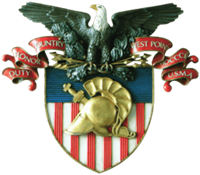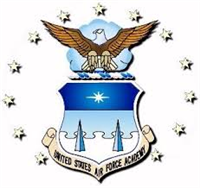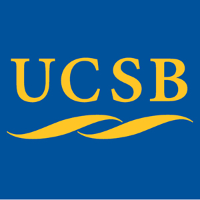What do they do?
Study the nature and use of areas of the Earth's surface, relating and interpreting interactions of physical and cultural phenomena. Conduct research on physical aspects of a region, including land forms, climates, soils, plants, and animals, and conduct research on the spatial implications of human activities within a given area, including social characteristics, economic activities, and political organization, as well as researching interdependence between regions at scales ranging from local to global.
Also known as:
Earth Observations Scientist, Geographer, GIS Coordinator (Geographic Information Systems Coordinator), GIS Geographer (Geographic Information Systems Geographer), GIS Physical Scientist (Geographic Information Systems Physical Scientist), Scientist
-
0%
Change
Ranks #16 in job growth rate0Job Openings
Ranks #20 in net job growth
-
United States Military Academy
West Point, NY
-
University of Denver
Denver, CO
-
United States Air Force Academy
USAF Academy, CO
-
University of California-Santa Barbara
Santa Barbara, CA
-
University of Washington-Seattle Campus
Seattle, WA
Looking for colleges that offer a specific major? Use the College Match Tool to find your best-matched schools and discover your estimated Net Price!
- Doctorate or Professional Degree (16%)
- Master's degree (42%)
- Bachelor's degree (34%)
- Associate's degree (4%)
- Some college, no degree (3%)
- High school diploma equivalent (1%)
- Less than high school diploma (1%)
Most Popular Majors that prepare Geographers
-
#1
-
Degrees Granted
3,942
-
Female Students
1,697
-
Male Students
2,245
-
Median Starting Salary
$43,800
-
-
#2
-
Degrees Granted
2,545
-
Female Students
1,022
-
Male Students
1,523
-
Median Starting Salary
$43,800
-
-
#3
-
Degrees Granted
203
-
Female Students
88
-
Male Students
115
-
Median Starting Salary
$43,800
-
People in this career often have these skills:
- Reading Comprehension - Understanding written sentences and paragraphs in work-related documents.
- Writing - Communicating effectively in writing as appropriate for the needs of the audience.
- Speaking - Talking to others to convey information effectively.
- Critical Thinking - Using logic and reasoning to identify the strengths and weaknesses of alternative solutions, conclusions, or approaches to problems.
- Active Listening - Giving full attention to what other people are saying, taking time to understand the points being made, asking questions as appropriate, and not interrupting at inappropriate times.
- Active Learning - Understanding the implications of new information for both current and future problem-solving and decision-making.
- Judgment and Decision Making - Considering the relative costs and benefits of potential actions to choose the most appropriate one.
- Complex Problem Solving - Identifying complex problems and reviewing related information to develop and evaluate options and implement solutions.
- Science - Using scientific rules and methods to solve problems.
- Systems Analysis - Determining how a system should work and how changes in conditions, operations, and the environment will affect outcomes.
People in this career often know a lot about:
- Geography - Knowledge of principles and methods for describing the features of land, sea, and air masses, including their physical characteristics, locations, interrelationships, and distribution of plant, animal, and human life.
- English Language - Knowledge of the structure and content of the English language including the meaning and spelling of words, rules of composition, and grammar.
- Computers and Electronics - Knowledge of circuit boards, processors, chips, electronic equipment, and computer hardware and software, including applications and programming.
- Education and Training - Knowledge of principles and methods for curriculum and training design, teaching and instruction for individuals and groups, and the measurement of training effects.
- Sociology and Anthropology - Knowledge of group behavior and dynamics, societal trends and influences, human migrations, ethnicity, cultures, and their history and origins.
People in this career often have talent in:
- Written Comprehension - The ability to read and understand information and ideas presented in writing.
- Written Expression - The ability to communicate information and ideas in writing so others will understand.
- Inductive Reasoning - The ability to combine pieces of information to form general rules or conclusions (includes finding a relationship among seemingly unrelated events).
- Oral Comprehension - The ability to listen to and understand information and ideas presented through spoken words and sentences.
- Oral Expression - The ability to communicate information and ideas in speaking so others will understand.
- Deductive Reasoning - The ability to apply general rules to specific problems to produce answers that make sense.
- Near Vision - The ability to see details at close range (within a few feet of the observer).
- Information Ordering - The ability to arrange things or actions in a certain order or pattern according to a specific rule or set of rules (e.g., patterns of numbers, letters, words, pictures, mathematical operations).
- Speech Recognition - The ability to identify and understand the speech of another person.
- Speech Clarity - The ability to speak clearly so others can understand you.
- Problem Sensitivity - The ability to tell when something is wrong or is likely to go wrong. It does not involve solving the problem, only recognizing that there is a problem.
- Category Flexibility - The ability to generate or use different sets of rules for combining or grouping things in different ways.
People in this career often do these activities:
- Prepare maps.
- Compile geographic or related data.
- Collect geographical or geological field data.
- Instruct college students in social sciences or humanities disciplines.
- Prepare scientific or technical reports or presentations.
- Develop software or applications for scientific or technical use.
- Conduct anthropological or archaeological research.
- Collect archival data.
- Advise others on business or operational matters.
This page includes data from:

 Occupation statistics: USDOL U.S. Bureau of Labor Statistics Occupational Employment Statistics
Occupation statistics: USDOL U.S. Bureau of Labor Statistics Occupational Employment Statistics
 Videos: CareerOneStop, USDOL/ETA and the Minnesota Department of Employment & Economic Development
Videos: CareerOneStop, USDOL/ETA and the Minnesota Department of Employment & Economic Development









